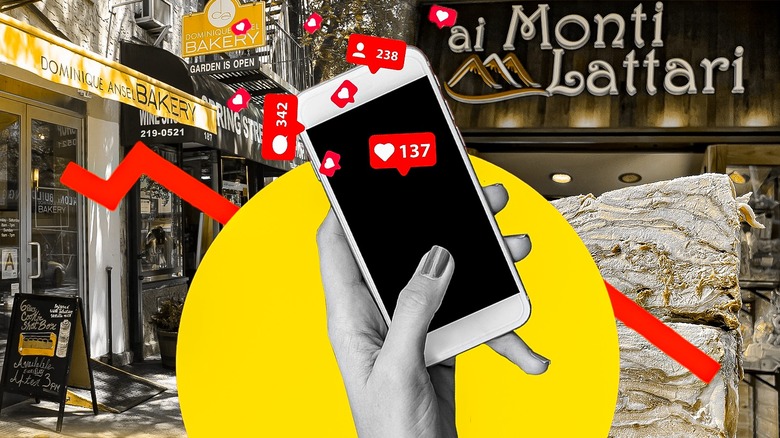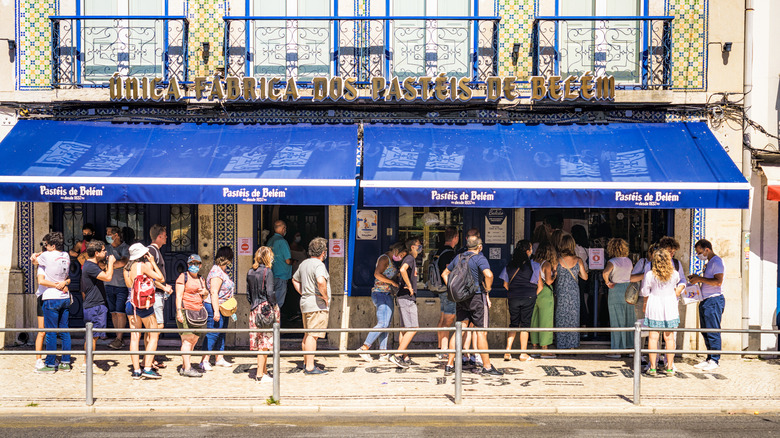Going Viral Can Mean Overnight Success For Restaurants, But There Are Downsides
Although viral social media content may sound like the Holy Grail to many business owners, the price of popularity can come with significant costs. When a viral campaign goes well, businesses can benefit from free publicity and an influx of attention. TikTok videos have resuscitated businesses like Santa Rosa's Lee's Noodle Shop, and Korea's MDK Noodles, whose dalgona candy sales soared after the airing of Squid Games. Yet not all viral campaigns are sunshine and roses. Once a topic goes viral, it can be difficult to control sentiment surrounding the subject and businesses must be prepared to meet demand. "There's the cool factor of taking the photo, but it has to have the other components, like experience, consistency of food, and evolution of the product," Aaron Allen, founder of a restaurant consultancy, advised CNN.
For Cronut creator Dominique Ansel, social media virality led to borderline despair and the popularity of his baked creations nearly led to his bakery's downfall. "From the inside we were just crumbling ... I was so overwhelmed every single day," he told our Tasting Table team. "We were crushed by requests and people were mad because we couldn't make enough." Employees were quitting and Ansel was stretched thin. "It was a very simple and humble beginning, and I think it was a painful start to start something beautiful that we've created," he recalls. Ansel isn't the only restauranteur who has faced challenges as a result of social media popularity.
When opportunity strikes
Domo, a Japanese restaurant in Denver, had to shut down after crowds inundated the business following viral content. Understaffed and overworked, the team struggled to maintain what brought the restaurant the massive amount of attention in the first place. "I started to think, 'If ever more customers were to come to enjoy Domo, I wouldn't be able to keep up with the quality of service I want to offer, and that could lead to losing the good reputation that Domo has cultivated since its inception and on which Domo is built,'" owner Gaku Homma told Westword.
This double-edged sword of social media success knows no geographical borders. Parisian wine and ice cream shop Folderol became inundated with customers wanting photos, not necessarily to order from the menu. Local customers began to avoid the establishment and owners had to hire bouncers to control crowds. In Naples, a panini maker's TikTok videos attracted too many visitors for the small, traditional salumeria, and owners of Ai Monti Lattari told him to stop making content. Once videos ceased, one-star reviews filled the restaurant's Google pages and Instagrammers hurled insults at the proprietors.
The land of the socials presents some tricky lines for businesses to walk but for those with the resources to navigate the uncertain terrain of social media sensationalism, a world of opportunity awaits.

